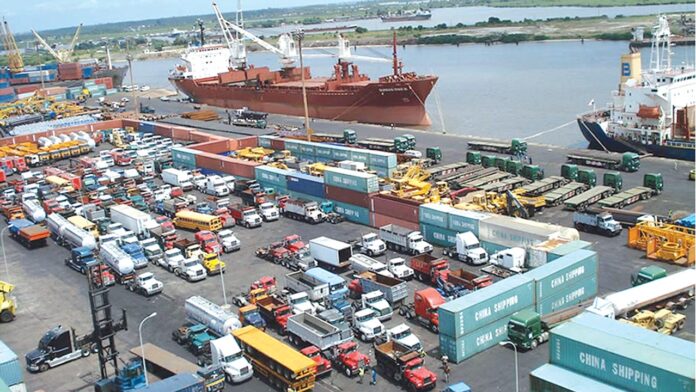Dr Vicky Haastrup, Chairman, Seaport Terminal Operators Association of Nigerian (STOAN) on Thursday said that deploying a Customs-driven cloud-based software would turn Nigerian ports to smart ports.
Haastrup made the call at the Town Hall meeting on Achieving Effective Digitalisation in the Nigerian Maritime Sector, organised by the League of Maritime Editors in Lagos.
She spoke on the topic; ‘Impact of Automation in Cargo Handling Operation at the ports’’.
She said that when deployed, could-based software would create new operational flows which would eliminate human contacts, expunge all forms of manual processes from the system and help the port function better.
According to her, in 2006, the Federal Government embarked on a port reform programme and an integral part of the reform is the concession of terminal operations to reputable private terminal operating companies.
“The port concession programme is to improve service delivery, increase the efficiency and productivity of the country’s ports, reduce vessel waiting time, reduce the cost of doing business at the port and others.
“The exercise had resulted in significant improvements in port operations.
“In spite of the tremendous improvements recorded in cargo handling operations, consignees and their agents still face numerous man-made hurdles at the ports because cargo clearing processes had remained manual.
“Customs processes must be simplified and automated to complement the gains recorded through the Federal Government’s port reforms,” she said.
Haastrup noted that the time was ripe to deploy the much-talked about National Single Windows and e-Customs.
She said that it would check manual Customs processes and the multiplicity of Customs units deployed all around the ports, the port gates and even on the roads to intercept cargoes already cleared from the ports.
Haastrup said that automation would provide smart solutions for the services operators render and helped to deliver operational efficiency, would improve operational processes and would promote a safer working environment and culture.
“Technology helps our terminals work better, faster and smarter,” she said.
She said that the manual inspection by customs contributed in no small measure to the high dwell time of cargoes at the ports and the main reason why importers and agents moved in large number to the port daily.
Haastrup said that this led to corruption through numerous human contacts.
“The solution is for the Federal Government to acquire high-end scanners for use of the Nigeria Customs Service.
“ It is not enough to merely acquire a couple of scanners as government is doing at present. A sufficient number of high-end scanners should be acquired to put a definitive end to manual cargo examination.
“The effective usage and maintenance of the scanners are also critical, ” she said.
Haastrup said that the services of risk assessment/management companies should therefore be engaged and retained for the purposes of providing effective utilisation and maintenance of the scanners.
“ If we are truly desirous of creating efficiency at our ports, manual examination will have to be reduced to less than 10 per cent of the cargoes handled at the port, in line with international best practices,” she said.




